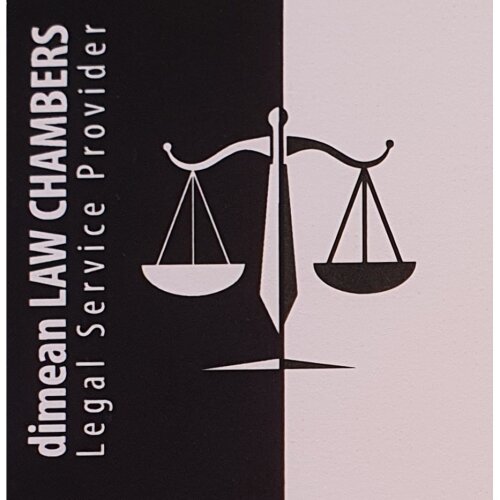Best Climate Change Law Lawyers in Colombo
Share your needs with us, get contacted by law firms.
Free. Takes 2 min.
List of the best lawyers in Colombo, Sri Lanka
About Climate Change Law in Colombo, Sri Lanka
Climate Change Law in Colombo, Sri Lanka, is an evolving field that addresses the legal aspects of environmental protection, sustainable development, and climate change mitigation and adaptation. As Sri Lanka faces increasing climate-related challenges such as rising sea levels, changing weather patterns, and extreme weather events, the laws and regulations governing climate change are becoming more significant. These laws aim to regulate greenhouse gas emissions, promote renewable energy, govern conservation efforts, and ensure compliance with international agreements. Both businesses and individuals in Colombo operate under these legal frameworks to prevent environmental harm and contribute to the country's international commitments.
Why You May Need a Lawyer
There are several situations where having legal assistance with matters related to Climate Change Law can be crucial. You may need a lawyer if you are a business owner seeking to understand regulations on emissions or waste management, a property developer needing environmental impact assessments, or an individual or organization involved in renewable energy projects. Legal experts can help you navigate complex licensing requirements, comply with statutory mandates, resolve disputes related to environmental damage, and represent you in court or before regulatory agencies. Those affected by environmental harm may also require a lawyer to seek remedies or hold responsible parties accountable.
Local Laws Overview
In Colombo, Climate Change Law is governed by a combination of national statutes, regulations, and policies. Key legal frameworks include the National Environment Act No. 47 of 1980, which sets standards for environmental protection and pollution control. The Sri Lanka Climate Change Policy guides the nation’s response to climate risks, while sector-specific rules address issues in energy production, waste management, forestry, and water resources. The Coastal Conservation Act and Water Resources Board Act are also relevant, especially in coastal and urban areas like Colombo. Additionally, Sri Lanka is a signatory to international agreements such as the Paris Agreement, which shapes domestic laws and targets for reducing greenhouse gas emissions. Regulatory bodies like the Central Environmental Authority and the Ministry of Environment oversee compliance and enforcement at the local level.
Frequently Asked Questions
What is Climate Change Law?
Climate Change Law encompasses rules and regulations that address the causes and effects of climate change, focusing on reducing environmental impact, adapting to climate risks, and ensuring compliance with both local and international environmental standards.
Who enforces Climate Change Law in Colombo?
The Central Environmental Authority, the Ministry of Environment, and other regulatory bodies are responsible for enforcing climate-related laws and policies in Colombo.
What are the penalties for violating climate-related laws in Sri Lanka?
Penalties can include fines, suspension of business licenses, mandatory closures, and, in some cases, criminal prosecution, depending on the severity of the violation and applicable legislation.
How can businesses in Colombo comply with climate change regulations?
Businesses can comply by obtaining necessary permits, reducing emissions, managing waste responsibly, conducting environmental impact assessments, and following regulatory guidelines issued by relevant authorities.
Are there incentives for adopting renewable energy in Colombo?
Yes, government policies and programs offer incentives such as tax benefits, grants, and concessional loans for businesses and individuals investing in renewable energy technologies.
Can individuals take legal action for environmental harm caused by climate change?
Yes, affected individuals or groups can pursue legal remedies through courts or regulatory bodies if they suffer damages due to environmental harm resulting from non-compliance or negligent activities.
How does Sri Lanka’s participation in international agreements affect local laws?
Sri Lanka’s commitments under international agreements like the Paris Agreement influence domestic legislation by setting targets for emission reductions and mandating reporting and compliance.
What role do environmental impact assessments play?
Environmental impact assessments are mandatory for many projects and are used to evaluate potential environmental effects, ensuring that development activities comply with legal standards and minimize negative impacts.
Are there specific laws for urban areas like Colombo?
Yes, urban areas are subject to additional regulations for air quality, waste management, and water resources to address the unique environmental and climate challenges found in cities like Colombo.
Where can I get help if I am unsure about compliance requirements?
You can seek assistance from legal professionals specializing in environmental and climate change law, as well as consult governmental and non-governmental organizations working in this field.
Additional Resources
Several resources are available to assist those seeking legal advice in Climate Change Law:
- Central Environmental Authority: The main regulator for environmental and climate change issues
- Ministry of Environment: Oversees policy implementation and compliance
- Sri Lanka Law College: Offers information on legal professionals and training
- Environmental Foundation Limited: A non-governmental organization specializing in environmental law
- Bar Association of Sri Lanka: Provides guidance on finding qualified lawyers
- Sri Lanka Climate Change Secretariat: Focuses on climate policy and implementation
Next Steps
If you require legal assistance in Climate Change Law in Colombo, it is advisable to:
- Identify your specific concern or legal issue related to climate change
- Gather relevant documentation such as permits, correspondences, impact assessments, and regulatory notices
- Contact a legal professional specializing in environmental or climate change law for an initial consultation
- Engage with local authorities or regulatory bodies if your case involves compliance or enforcement issues
- Stay informed about ongoing changes to laws and regulations affecting your situation
- Consider alternative dispute resolution options if appropriate
Engaging with a qualified lawyer will help you understand your rights and obligations, protect your interests, and ensure compliance with Colombo's climate change laws.
Lawzana helps you find the best lawyers and law firms in Colombo through a curated and pre-screened list of qualified legal professionals. Our platform offers rankings and detailed profiles of attorneys and law firms, allowing you to compare based on practice areas, including Climate Change Law, experience, and client feedback.
Each profile includes a description of the firm's areas of practice, client reviews, team members and partners, year of establishment, spoken languages, office locations, contact information, social media presence, and any published articles or resources. Most firms on our platform speak English and are experienced in both local and international legal matters.
Get a quote from top-rated law firms in Colombo, Sri Lanka — quickly, securely, and without unnecessary hassle.
Disclaimer:
The information provided on this page is for general informational purposes only and does not constitute legal advice. While we strive to ensure the accuracy and relevance of the content, legal information may change over time, and interpretations of the law can vary. You should always consult with a qualified legal professional for advice specific to your situation.
We disclaim all liability for actions taken or not taken based on the content of this page. If you believe any information is incorrect or outdated, please contact us, and we will review and update it where appropriate.

















